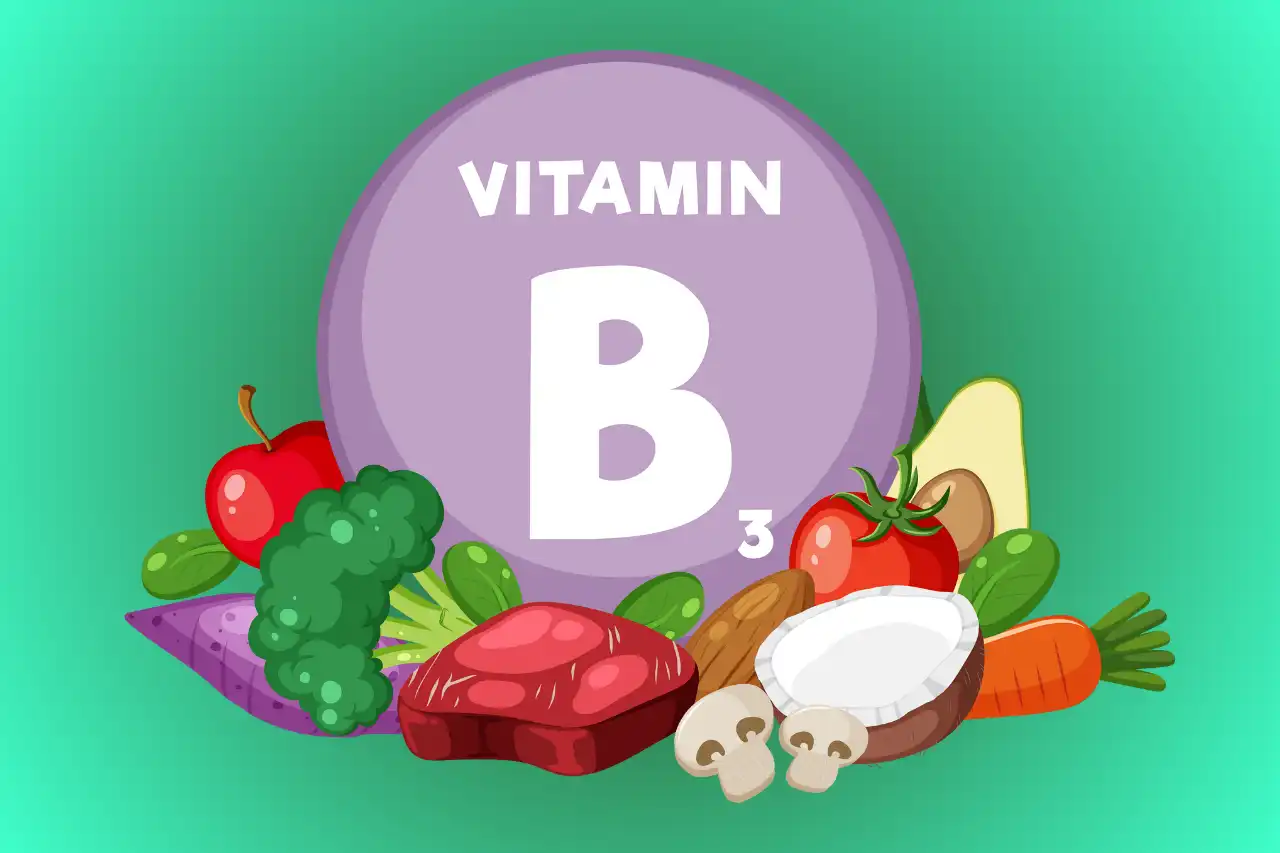-: VITAMIN – E :-
Fuel your health with Vitamin E – for energy, immunity, and beauty..!!!
Vitamin E (also known as Alpha-tocopherol; Gamma-tocopherol) is a powerful fat-soluble antioxidant that plays a crucial role in protecting our cells from damage. It is a group of eight compounds, with alpha-tocopherol being the most active form in the human body.
Daily Requirements
Men
- 14 years and older – 15 mg per day
Women
- Pregnant teens and women – 15 mg per day
- Breastfeeding teens and women – 19 mg per day
Children
- Infants (0-12 months) :- (4-5 mg) per day
- Children (1-13 years) :- (6-11 mg) per day
Function on different Organ
- Skin and Hair
Details
Vitamin E acts as a natural moisturizer, protecting the skin from dryness, UV damage, and premature aging. It also promotes hair growth by improving blood circulation in the scalp.
- Heart and Blood Circulation
Details
It helps prevent the oxidation of cholesterol, reducing the risk of heart disease. Vitamin E also supports healthy blood vessels and prevents clot formation.
- Brain and Nervous System
Details
This vitamin supports brain health by reducing oxidative stress, which may help lower the risk of cognitive decline, including Alzheimer’s disease.
- Eyes
Details
Vitamin E protects the eyes from oxidative damage, reducing the risk of cataracts and age-related macular degeneration (AMD).
- Immune System
Details
By strengthening immune cells, vitamin E helps the body fight infections and speeds up recovery from illnesses.
- Cells
Details
It helps in promoting cellular signaling and metabolic processes.
- Liver
Details
Vitamin E protects the liver from oxidative stress, reduces inflammation, supports detoxification, and helps to prevent fatty liver disease, specifically nonalcoholic fatty liver disease (NAFLD) and fibrosis.
- Lungs
Details
It supports lung health by improving lung function, protecting from asthma, and reducing the risk of lung cancer.
Symptoms incase of Deficiency
- Muscle weakness (myopathies) and difficulty with coordination.
- Vision problems, retinopathy, or blurry vision.
- Weakened immune response.
- Nerve damage (peripheral neuropathy) causing numbness or tingling in hands and feet.
- Dry, dull skin and hair loss.
- Ataxia means loss of control of body movements.
- Rupturing of red blood cells (hemolytic anemia).
Diagnosis
- Vitamin E (Tocopherol) Blood Test or Serum Vitamin E Test.
The Vitamin E (Tocopherol) Blood Test is done to:-
1. Check for Deficiency or toxicity.
2. Monitor Malabsorption Disorders such as Crohn’s disease, cystic fibrosis, or liver disease.
3. Evaluate Neurological Symptoms.
4. Assess Supplementation Levels.
Food Sources
Veg Sources
- Nuts and seeds
- Almonds.
- Pistachio..
- Cashew nuts.
- Sunflower seeds.
- Hazelnuts.
- Peanut butter.
- Vegetable oils
- Wheat germ oil.
- Sunflower oil.
- Safflower oil.
- Corn oil.
- Soybean oils.
- Vegetables
- Spinach.
- Kale.
- Broccoli.
- Tomatoes.
- Pumpkin.
- Red bell pepper.
- Asparagus.
- Fruit
- Avocados.
- Kiwi.
- Mango.
- Fortified cereals
- Brown rice.
Non-Veg Sources
- Fatty fish
- Salmon.
- Trout.
- Shellfish
- Shrimp.
- Lobster.
- Other
- Egg yolks
- Oysters.
- Chicken.
- Milk.
- Liver.
What if Overconsumption
While vitamin E is essential, excessive intake—especially from supplements—can have negative effects. Over consumption can lead to:-
- Increased risk of bleeding due to blood-thinning properties.
- Nausea, diarrhea, and stomach cramps.
- Weakness, fatigue, or headaches.
- Gonadal dysfunction.
- Blurred vision.
- Rash.
- Increased concentration of creatine in the urine.
- Potential risk of stroke if taken in very high dose.
- Risk for birth defects.
- Prostate cancer.
Vitamin E is a powerful antioxidant that protects the body from oxidative stress, supports skin and heart health, and boosts immunity. By incorporating nuts, seeds, green vegetables, and healthy oils into your meals, you can naturally maintain glowing skin, a strong heart, and a sharp mind. A well-balanced approach is the secret to harnessing the full power of vitamin E…!!!












